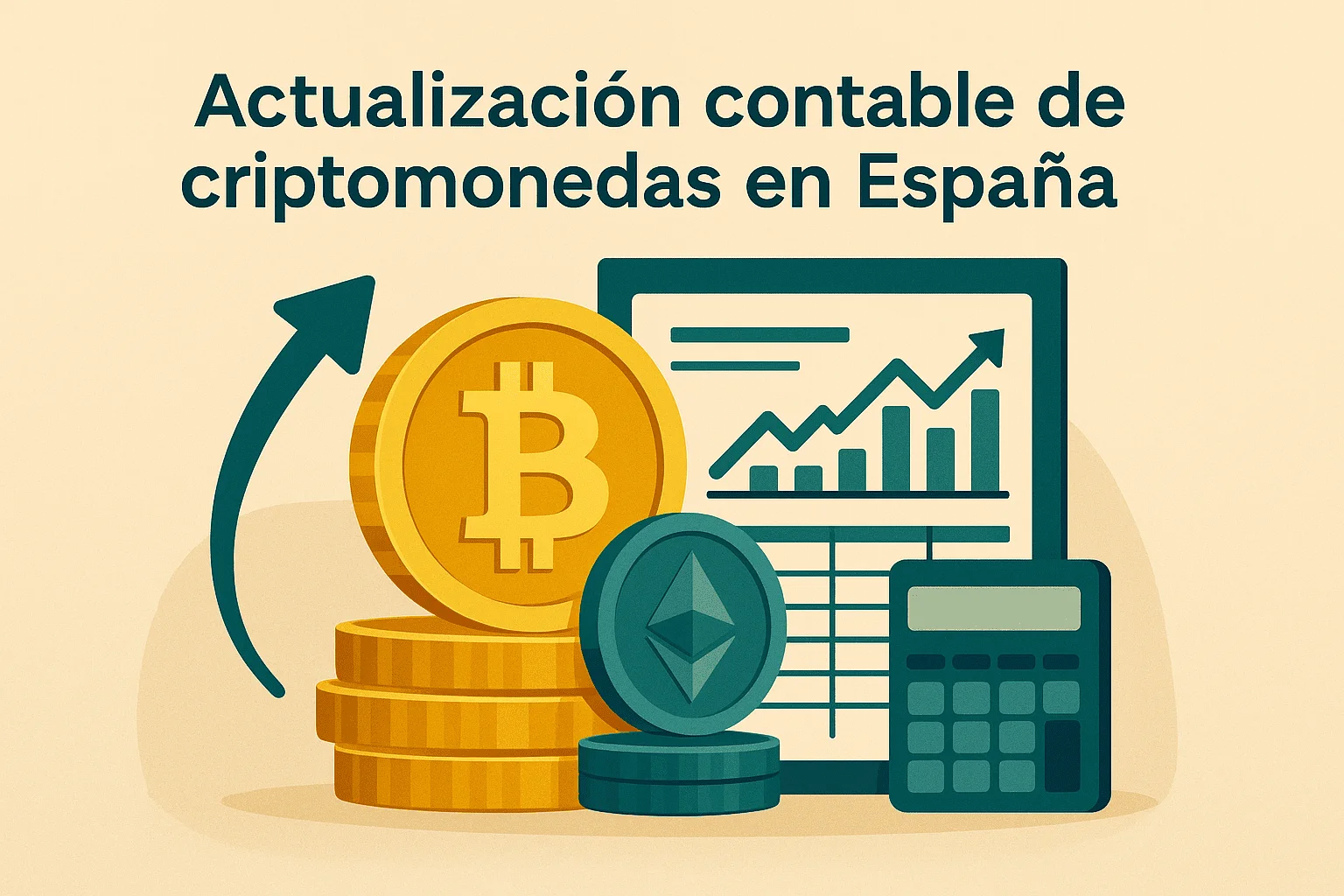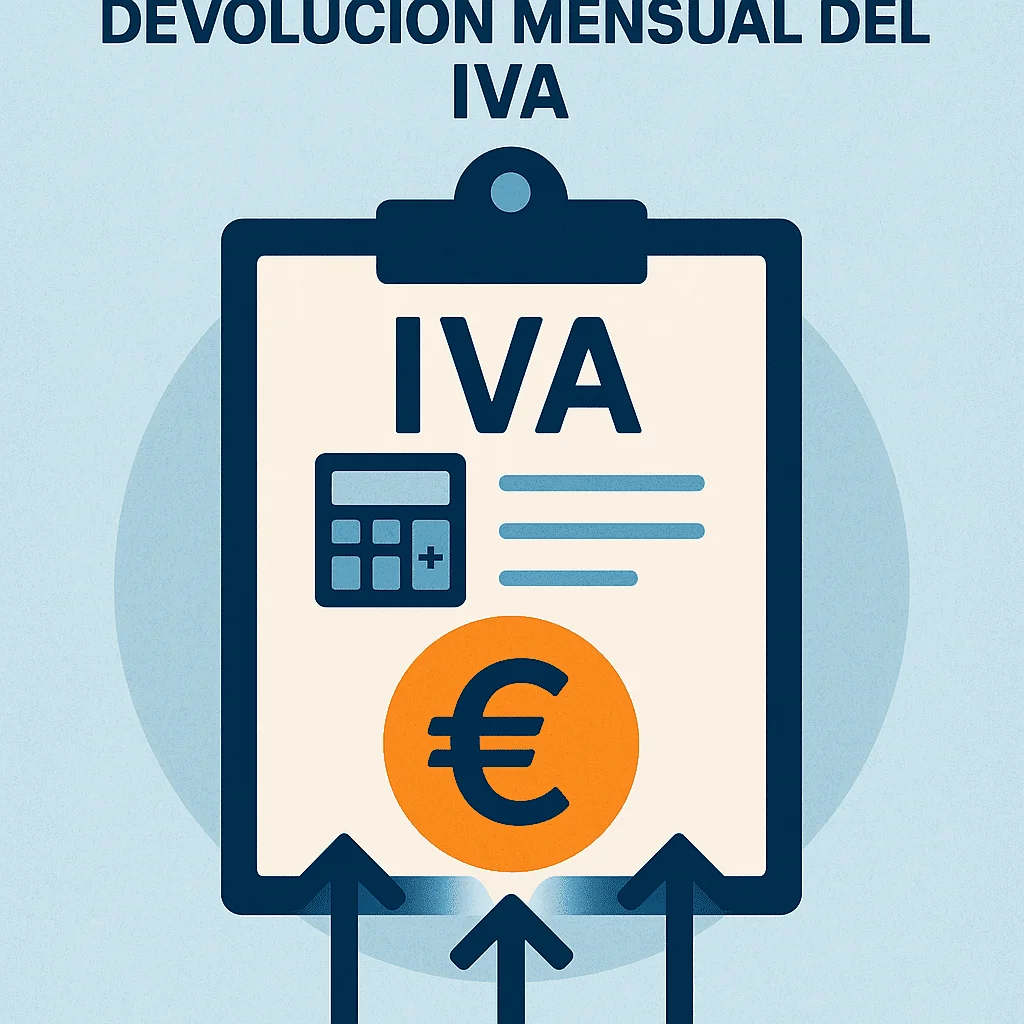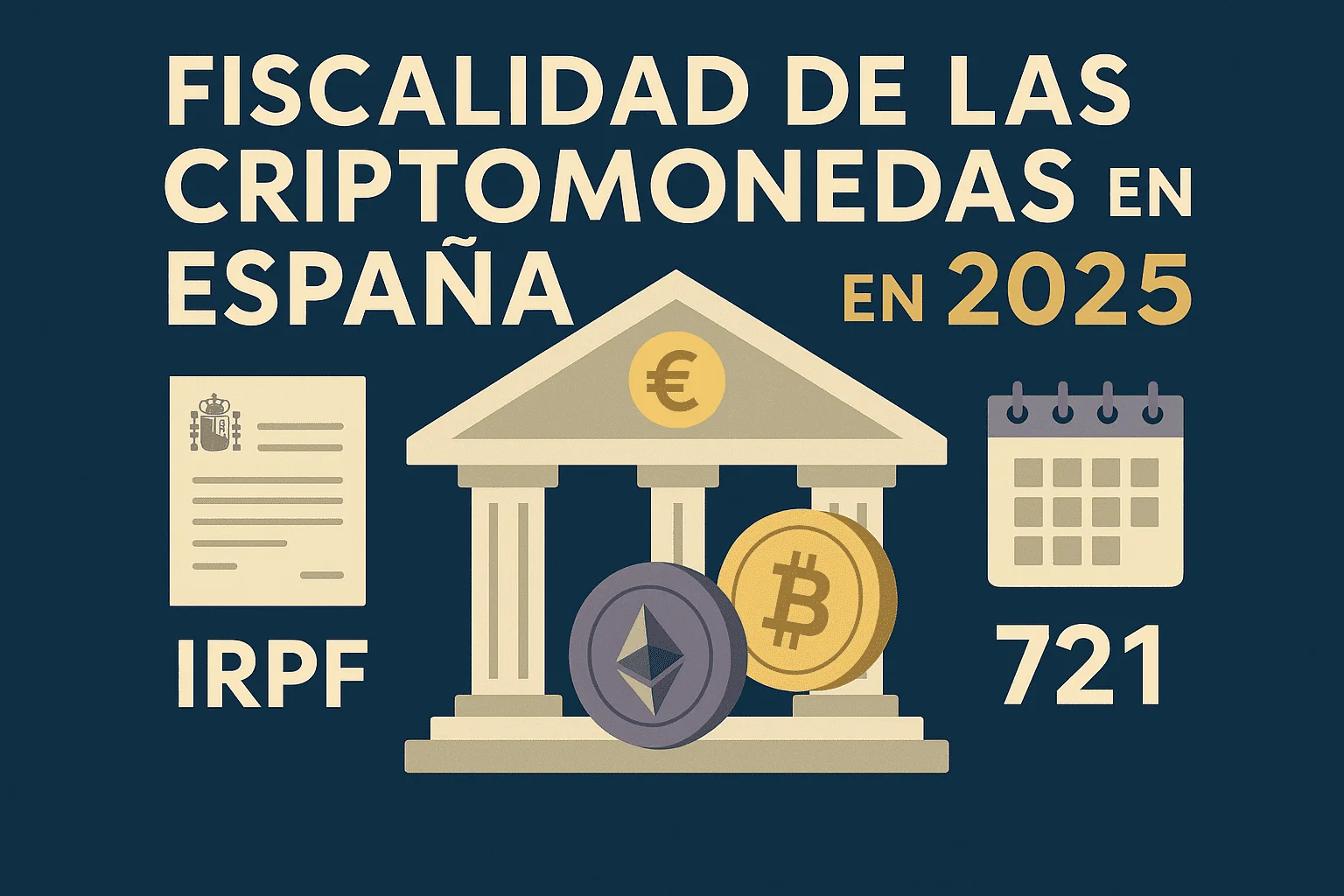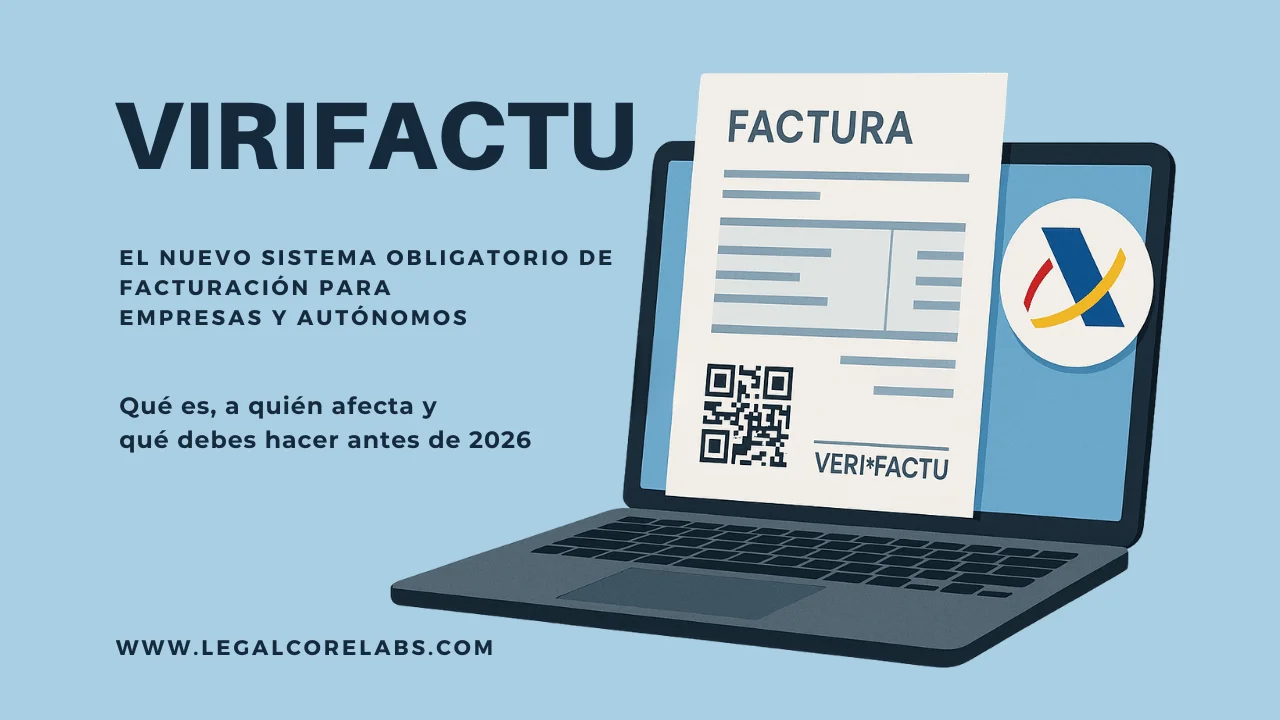How Are Cryptocurrencies Accounted for in Spain?
Business interest in cryptocurrencies has grown significantly in recent years.
More and more companies are considering holding part of their treasury in Bitcoin, Ethereum, or other digital assets.
However, a key question arises: how should these assets be reflected in accounting records?
In Spain, the Institute of Accounting and Auditing (ICAC) has provided clear guidance within the framework of the Spanish General Accounting Plan (PGC).
1. Initial Recognition
Cryptocurrencies acquired by a company are recorded on the balance sheet at their purchase price, which includes:
- The amount paid.
- Commissions and transaction-related expenses.
Example:
If a company buys 1 Bitcoin for €30,000 and pays €100 in commission, the accounting value will be €30,100.
2. Accounting Classification
The accounting treatment depends on how the company uses these assets:
- Intangible fixed asset: when held as a long-term investment.
- Inventory: when acquired for regular sale (e.g., by an exchange or broker).
💡 In no case are they considered legal tender or traditional financial instruments.
3. Subsequent Valuation
The key lies in how the value is updated after purchase:
Intangible Fixed Assets
- They are not revalued upward even if the market price rises.
- Impairment losses are recorded if the fair value falls below cost.
- If the price later recovers, the impairment is not reversed.
Inventory
- Measured at the lower of cost or net realizable value.
- Adjusted if prices fall, but not increased until sale.
4. Sale of Cryptocurrencies
Upon sale, the company must:
- Derecognize the asset’s book value.
- Record the difference with the sale price as a gain or loss in the income statement.
Thus, only at the time of sale are revaluation gains recognized.
5. Differences with International Standards
While under IFRS some countries allow cryptocurrencies to be measured at fair value through profit or loss, Spain’s approach is more conservative:
- Only downward impairments are recognized.
- Gains are recorded only upon actual sale.
6. Conclusion
In Spain, cryptocurrencies are not periodically updated to market value in accounting:
- They remain at acquisition cost.
- They are adjusted only in case of impairment.
- Gains are recognized only when sold.
📘 This conservative approach seeks to protect financial statements from the extreme volatility of crypto assets, even though it prevents reflecting latent gains on the balance sheet.



